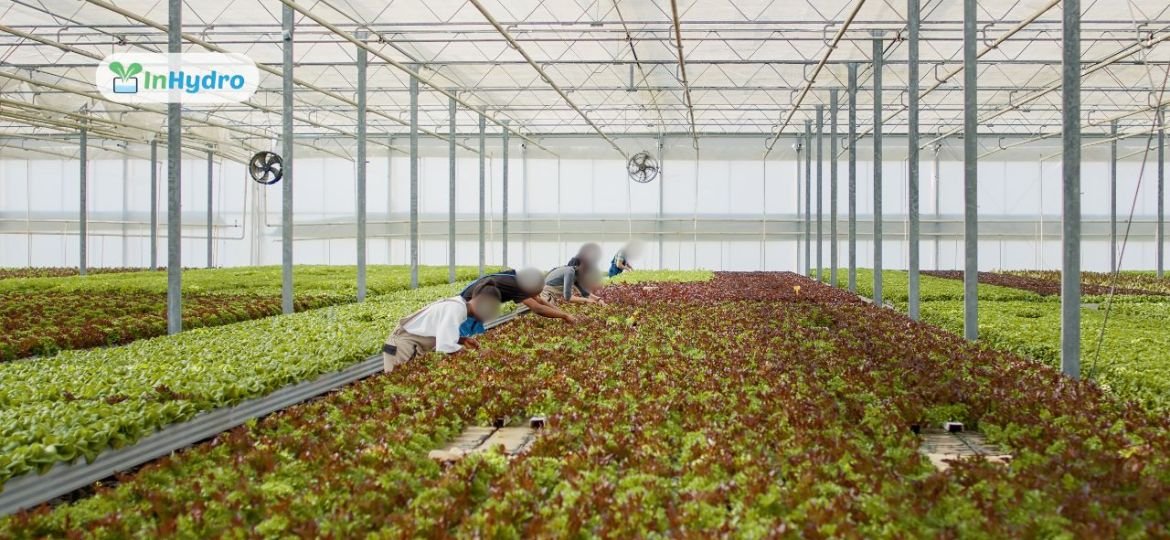
How to Scale Your Hydroponic Farm: Tips for Growing a Commercial Business
Hydroponics farming is transforming agriculture by offering a sustainable, space-efficient, and high-yield method of growing crops. For farmers looking to move beyond small-scale setups, scaling up to a commercial hydroponic farm can be a game-changer. However, this expansion requires strategic planning, investment in infrastructure, and knowledge of industry trends.
This guide will walk you through the steps to scale your hydroponic farm, turning it into a thriving commercial business.
Why Scale Your Hydroponic Farm?
Scaling up your hydroponic farm offers numerous benefits:
- Increased Revenue: Larger farms produce higher yields, leading to greater profits.
- Market Expansion: Entering the commercial sector allows you to supply grocery chains, restaurants, and distributors.
- Economies of Scale: Bulk purchasing of nutrients, seeds, and equipment reduces costs per unit.
- Sustainability Leadership: Large-scale hydroponics contributes to eco-friendly agriculture by reducing water and land use.
Steps to Scale Your Hydroponic Farm
1. Conduct Market Research
Before expanding, research your target market to understand demand, pricing, and competition.
- Identify potential clients like restaurants, supermarkets, and food delivery companies.
- Analyze which crops are most profitable and in demand in your region.
- Study competitors to differentiate your offerings, such as organic certification or unique crop varieties.
2. Choose the Right Hydroponic System for Scaling
When scaling, the hydroponic system you use plays a critical role in productivity. Consider the following systems:
- Nutrient Film Technique (NFT): Ideal for leafy greens and herbs.
- Dutch Bucket System: Best for fruiting crops like tomatoes and peppers.
- Deep Water Culture (DWC): Suitable for high-yield crops like lettuce.
- Vertical Hydroponics: Perfect for maximizing space in urban or indoor settings.
Evaluate the system’s efficiency, maintenance requirements, and scalability to ensure it aligns with your business goals.
3. Invest in Infrastructure and Technology
Scaling up requires robust infrastructure and automation to optimize operations. Key investments include:
- Environmental Control Systems: Automated systems to regulate temperature, humidity, and light.
- Grow Lights: LED grow lights for consistent crop growth in indoor or low-light conditions.
- Irrigation Systems: Efficient drip or recirculating systems to minimize water usage.
- Monitoring Tools: Sensors and software for tracking pH, nutrient levels, and plant health.
4. Secure Adequate Funding
Scaling a hydroponic farm involves significant upfront costs. Explore the following funding options:
- Agricultural Grants: Check for government subsidies or grants for sustainable farming.
- Investors: Present a solid business plan to attract investors.
- Loans: Apply for commercial loans tailored to agriculture businesses.
5. Expand Your Workforce
With larger operations, you’ll need skilled staff for tasks like system maintenance, harvesting, and sales.
- Hire technicians familiar with hydroponic systems and crop management.
- Train employees on handling automation tools and maintaining plant health.
6. Optimize Your Supply Chain
A reliable supply chain is crucial for a commercial farm.
- Establish partnerships with suppliers for seeds, nutrients, and grow media.
- Work with distributors to ensure timely delivery of fresh produce to clients.
7. Focus on Marketing and Branding
Creating a strong brand identity helps establish your farm in the competitive market.
- Highlight your farm’s sustainability and soil-less farming practices.
- Use social media to showcase your crops and behind-the-scenes farming processes.
- Participate in farmers’ markets and food expos to connect with potential clients.
Challenges of Scaling a Hydroponic Farm
While scaling offers many advantages, it also comes with challenges:
- High Initial Costs: Upgrading systems and infrastructure can be expensive.
- Technical Expertise: Operating large-scale hydroponic systems requires specialized knowledge.
- Market Saturation: Competition in the commercial hydroponics sector is growing.
- Pest and Disease Management: Larger setups may face increased risks of infestations.
FAQs
Hydroponic systems are highly space-efficient. Vertical farming setups allow you to grow large quantities of crops in smaller spaces compared to traditional farming.
Leafy greens, herbs, and high-demand crops like tomatoes and cucumbers are ideal for scaling due to their quick growth and market demand.
While it’s possible, automation significantly improves efficiency, reduces labor costs, and ensures consistent crop quality, making it essential for commercial operations.
Why Choose InHydro for Your Commercial Hydroponic Expansion?
At InHydro, we specialize in providing cutting-edge hydroponic solutions tailored to commercial farming. From system design and setup to automation and nutrient management, we’re your trusted partner in scaling your hydroponic farm. Our expertise ensures you achieve maximum productivity with minimal environmental impact.

